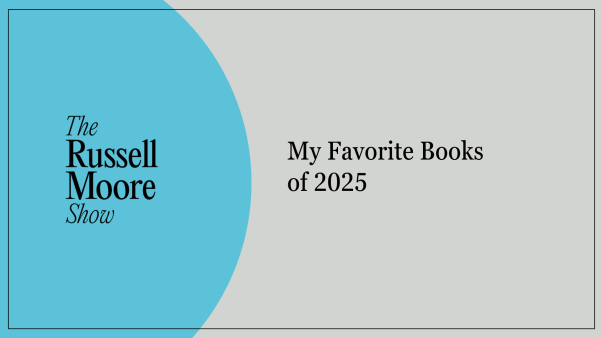Readers of Science magazine must have been surprised when they opened the December 22 issue and found an essay-review (much longer than the typical Science book review) by David Foster Wallace, writer of fiction and idiosyncratic essays, author of Infinite Jest, Brief Interviews with Hideous Men, and other books said by critics to contain the very quintessence of postmodernism. Not, in short, the typical Science reviewer.
Wallace’s essay-review, “Rhetoric and the Math Melodrama,” takes off from two novels set in the world of mathematics, but his larger subjects are, first, the recent rise in the “cultural stock” of mathematics, as evidenced in the outpouring of books and even the occasional movie with math themes, and second, the implications of writing about matters which most of your readers will not understand (though some will—and how do you maintain your bona fides with the cognoscenti while not losing the bulk of your readers?).
The subject is large, and Wallace approaches it in good postmodern fashion: jokey (for example, there are 24 endnotes, many of them quite long, so that in some ways the piece reads like a parody of a Science article) yet at the same time insinuating a command of the material. (This is most unpleasantly apparent in Wallace’s first footnote, in which, having cited G.H. Hardy’s 1940 classic, A Mathematician’s Apology, he makes the preposterous claim that “There is very little that any of the recent books do that Hardy’s terse and beautiful Apology did not do first, better, and with rather less fuss.”)
And since even postmodernists, despite their horror of metanarratives, are compelled to tell stories, Wallace tells a story about the vogue for math books. In Wallace’s myth of origins, the breakthrough was Amir Aczel’s book, Fermat’s Last Theorem: Unlocking the Secret of an Ancient Mathematical Problem, which “made best-seller lists in 1996” and from which “everything” followed.
The problem with this story is that it doesn’t fit the facts. For example, Wallace refers to Robert Kanigal’s book, The Man Who Knew Infinity: A Life of the Genius Ramanujan, as “another of the post-Fermat math bios now on the market.” Hmmm. I reviewed Kanigal’s book when it was published—in 1991, five years before Aczel’s book appeared. Wallace lists David Berlinski’s book, Newton’s Gift, published late last year, as one of the books that followed from Aczel’s success, but he doesn’t mention Berlinski’s own breakthrough book, A Tour of the Calculus, which appeared in 1995—again, pre-Aczel.
Now these errors could have been detected with elementary fact-checking. (I even wondered, for a moment, if Wallace inserted them just to see if they would be caught.) More important, once detected, they should have led an editor at Science to question Wallace’s story, which on closer examination is simply a convenient fabrication: it suits his purposes to make Aczel’s book the point of origin, and never mind the facts.
What happened? Isn’t everything published in Science subject to rigorous scrutiny before it gets into print? Do the editors think that facts don’t matter in a piece such as Wallace’s? Is this merely an anomaly, or does it point to larger trends at Science magazine and in the “scientific community”? More on this next week.
John Wilson is Editor of Books & Culture and Editor-at-Large for Christianity Today.
Related Elsewhere
Visit Books & Culture online at BooksandCulture.com or subscribe here.
The Science homepage allows free access to some articles but only online subscribers can access Wallace’s “Rhetoric and Math Melodrama.”
The New York Times Book Review offers a profile of Wallace in “The Grunge American Novel” and a review of his collected essays.
Read Salon’s interview with David Foster Wallace.
Books & Culture Corner appears Mondays at ChristianityToday.com. Earlier Books & Culture Corners include:
On Being Human, Part 2 | Learning from information rather than instinct is often harder than it looks. (Dec. 18, 2000)
On Being Human | Natural History magazine celebrates a milestone. (Dec. 11, 2000)
Are You Re:Generated? | Inside one of the best religious publications on the planet (that’s not Christianity Today). (Dec. 4, 2000)
The Promise of Particularity Amid Pluralism | A dispatch from the Annual Meeting of the American Academy of Religion and the Society of Biblical Literature. (Nov. 22, 2000)
The Horror! | Joan Didion encounters evangelical Christianity. (Nov. 13, 2000)
Election Eve | Why isn’t anyone focusing on those who simply won’t bother to vote? (Nov. 6, 2000)
Three Books and a Wedding | Remembering the good news. (Oct. 30, 2000)
Unintelligent Designs | Baylor’s dismissal of Polyani Center director Dembski was not a smart move.(Oct. 23, 2000)
Crying About Wolfe | Is there a scandal of “The Opening of the Evangelical Mind”? (Oct. 16, 2000)
The Light Still Shines | A Harvard-sponsored conference looks at the future of religious colleges. (Oct. 9, 2000)







